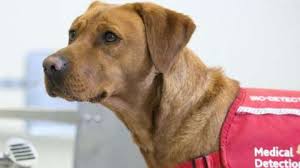How much cantaloupe can my dog eat? A few pieces of cantaloupe are safe for dogs to eat. Cantaloupe is packed with nutrients, low in calories, and a great source of water and fiber.
What fruit dogs Cannot eat?
What Fruits Are Not Good for Dogs?
- Avocado. This fruit contains persin, a toxin that makes dogs throw up and have diarrhea.
- Cherries. Cherry pits contain cyanide.
- Grapes. Grapes can cause sudden kidney failure in dogs.
- Tomatoes. The green parts of the tomato plant have solanine, which is toxic to dogs.
What does cantaloupe do for dogs? Cantaloupe for dogs will help with your canine’s eyesight. Plus cantaloupes are loaded vitamin A and lots of beta carotene, which helps reduce the risk of cancer and prevents cell damage. It’s also a good source of vitamins B-6 and C, fiber, folate, niacin and potassium.
Can cantaloupe cause diarrhea in dogs? Yes, Dogs Can Eat Cantaloupes.
Although it is true that there are many health benefits to feeding your dog cantaloupes, there are also many things to consider before doing so. Without moderation, side effects like diarrhea, constipation, stomach pains or even canine dental problems may occurs.
How much cantaloupe can my dog eat? – Additional Questions
Are bananas good for dogs?
Yes, dogs can eat bananas. In moderation, bananas are a great low-calorie treat for dogs. They’re high in potassium, vitamins, biotin, fiber, and copper. They are low in cholesterol and sodium, but because of their high sugar content, bananas should be given as a treat, not part of your dog’s main diet.
What Can dogs drink beside water?
Dogs can drink some fresh juices, coconut water, carrot extract, nut milk, bone broth, and kefir in moderate quantities. Make sure you don’t give them anything containing added sugars, salt, or preservatives. When it comes to hydrating your dog in the safest way possible, stick to clean fresh cool water.
What happens if your dog eats too much cantaloupe?
The Dangers of Eating Cantaloupe
There are some risks associated with feeding cantaloupe to dogs. Cantaloupe rinds, like watermelon rinds, can cause gastrointestinal upset and become impacted in your dog’s digestive tract. These tough, fibrous skins are also a choking hazard.
Does melon Give dogs diarrhea?
Too much watermelon can contribute to a bout of diarrhea.
And melons, in general, may not sit well with your dog’s digestive system.
Can cantaloupe make a dog sick?
Cantaloupe Rinds: Just like with watermelon and other melons, the rinds can cause upsets in your dog’s digestive system or a tummy ache. You can avoid that by removing them and serving the fruit in bite-sized pieces.
Can dogs have honeydew melon?
Dogs can eat honeydew melon after you remove the seeds and rind. The melon has many vitamins and nutrients, and honeydew’s high water content makes it a hydrating treat for all dog breeds.
Can dogs eat tomatoes?
Ripe tomatoes are considered nontoxic to dogs and can be fed in moderation as an occasional snack. While it’s considered safe for dogs to eat red, ripe tomatoes, the plants themselves are part of the nightshade family of vegetables (which also include potatoes, bell peppers, and blueberries).
Is pineapple good for dogs?
Is It Safe for Dogs to Eat Pineapple? Yes. Raw pineapple, in small amounts, is an excellent snack for dogs.
Can dogs eat broccoli?
Yes, dogs can eat broccoli. Dogs can eat the vegetable both cooked and raw, as long as there are no seasonings or oils added. However, this vegetable should always be given in very small quantities, especially because the florets contain isothiocyanates, which can cause gastric irritation in dogs.
Can dogs eat mashed potatoes?
Can dogs eat mashed potatoes? Yes, as long as the potatoes are roasted and not boiled and no salt, seasonings, milk or butter is added your pet can enjoy this all-time favourite dish. However, there isn’t much nutritional value your dog will be able to get from eating mashed potatoes.
Can dogs have potatoes?
White potatoes belong to the nightshade family of vegetables, which includes tomatoes; like tomatoes, raw potatoes contain solanine, a compound that is toxic to some dogs. However, cooking a potato reduces the levels of solanine. If you do feed your dog a potato, it should be baked or boiled, with nothing added to it.
Can dogs eat cucumbers?
Are Cucumbers Safe for Dogs? Cucumbers are perfectly safe for dogs to eat, and offer a low-calorie, crunchy snack that many dogs love. Cucumbers only contain about 8 calories per one-half cup of slices, compared to the 40 calories in a single medium biscuit, and are very low in sodium and fat.
What does celery do to dogs?
Celery is very low in fat and cholesterol and is an excellent source of fiber, vitamins A, C, and K, folate, potassium, and manganese. The crunchy veggie also might freshen up your dog’s breath.
Can dogs eat cheese?
Yes, dogs can eat cheese. In fact, cheese is often a great training tool, especially for puppies.
Can dogs eat apple?
This low-calorie fruit actually has several health benefits for your canine friend. Eating an apple slice can even help clean your dog’s teeth and improve the smell of their breath. However, you should keep portion sizes small because eating too much apple can result in an upset stomach.
Can dogs eat popcorn?
So is it safe for dogs to eat popcorn? Yes and no. Plain, air-popped popcorn is safe for dogs to eat in small quantities. Buttered popcorn or popcorn with other toppings is not safe for your dog on a regular basis, although eating a few dropped pieces here and there probably won’t hurt him.
Can dogs eat ice cream?
Dogs Don’t Digest Milk Well
Eating ice cream may cause your dog a stomach ache or worse, depending on how sensitive they are. Ice cream can cause your dog gas, bloating, constipation, diarrhea or vomiting.
